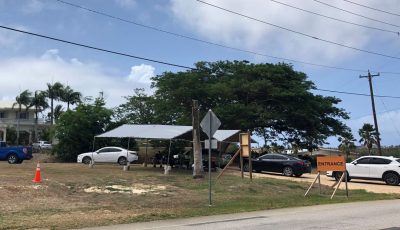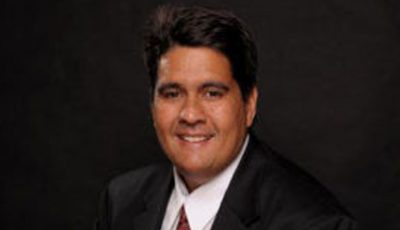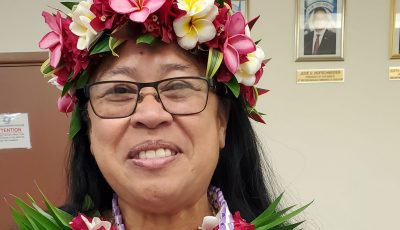Nuku’alofa
CNMI Gov. Ralph DLG Torres justified the trip when he joined heads of State in Fiji and brought CUC folks to look at utilities. Fair enough. That focused us to the Pacific south of the Equator. I recalled a lyric and a tune.
“Si’i matangi kuo ma’ilinoa
Kataloto taukei ne ‘iloa
To’onga o loto Nuku’alofa
‘Uta’anga sia fine Leiola”
Tina in China is from Tonga. I chanced on her tutoring students at the library foyer of SAU in Liaoning while I was trying to locate the office of the librarian. She looked like one who could give directions in English.
When I found out that she was Tongan (“cousins” to the Samoans who were exiled in Saipan during the German occupation), the above song immediately flashed into my brain cells and I was back to the early ’80s when I taught a Human Development course in the island of Tongatapu, the largest and most populated one among the three island groups that include Vava’u and Ha’apai.
I remembered it well because a section of the island protected bats, a delicacy reserved for the nobility, similar to the bat-eating tradition I know practiced also in the Marianas. The winged creatures immediately triggered recollection of Tonga and the song.
Tina was engaged in geometric designs as part of the engineering course she was taking when I got the urge to let her know there was another in the building who could carry a Tongan tune, so I went over and sang her the song. That was December 2015. I came back to Saipan first week of January and I got an email from her. She remembered my intrusion and my song.
The world has really grown smaller. Tonga reminds me of the 72 Samoans exiled in Saipan in the late 19th century including 10 chiefs and their relatives and servants, compliments of German governor Wilhelm Solf. The natives were involved in Mau a Pule to reinstate traditional Samoan practices abolished by the German colonial regime in the late 19th century. The Germans thought it not only rebellious, but it ran against the assumption that anything European was better than anything anyone anywhere can offer!
Humanities executive director Scott Russell is seeking historical documents to this part of forgotten Marianas history. The exiles included a native orator, Lauaki Namulau’ulu but unable to get the support of other Samoans vis-a-vis the Germans, they were exiled into “faraway” Saipan.
While living in Majuro of the Marshall Islands in the early ’80s, I visited Apia of Samoa and a village on the other side of the island, as well as Pago-Pago of the American sector, on my way to and from Tongatapu where the capital Nuku’alofa is located with half of the nation’s population. It is home to a constitutional monarchy that rules over 170 islands of the Kingdom of Tonga, which never lost sovereignty to any foreign power, even to the British and the Germans in the neighborhood.
The story of Captain Cook after his first visit in 1773 is familiar. He arrived during a fruit festival when he was cordially welcomed and fed well, escaping the roast stick Tongan chiefs cannibalistically desired to have him and his crew for dinner (an aside, the Caribbean was named after folks who ate humans, a variant of the word Cabires) but failed to agree on a plan. Cook never knew he was main course for dinner; he felt so welcomed that he called the place, Friendly Isles.
To run into someone from Tonga in the northeast of China was serendipitous. I slipped a calling card to our lass from the southernmost islands of Polynesia (Tonga literally means, south) of the South Pacific, thus, the email.
Having been inured to the mystique of Polynesia, my two-months sojourn in Tonga was delightful, especially since 90 percent of the whole population are by NIH standard overweight, and the word “obese” applied to more than half of the island folks used liberally without apology. The cassava, sweet potatoes, and taro were abundant enough to ensure the high carbohydrate intake, mixed with pork with poultry and caught fish, eating was indulging at the time. Folks to a party expect to return home with a heaping plate of food prepared even before guests get there.
Half of the economy came from outward remittances, where folks identified as Tongans live, so the other half back home received the dole, worked the land owned by the monarchy and their peons, but they knew how to live it up in spite of the minimal incentive to be productive.
Sitting on mats on the floor, clapping, singing, and swaying while the food is ladled and the pacifying kava juice was passed around, took the whole afternoon after the worship service at the Free Wesleyan Church where the royal seat was higher than the Pastor’s at the pulpit.
So Tina in China came as a very pleasant surprise, and though my visit to Tonga was more than 30 years ago, the memories of the languid Sundays and the Si’i matangi song came rushing back to memory. I was only too happy to vocalize the song I had not sang for a long, long while.
Ah, we are growing old. We recall old days vividly, but miss or are late for yesterday’s appointments! Talofa! Kava cheers!



























